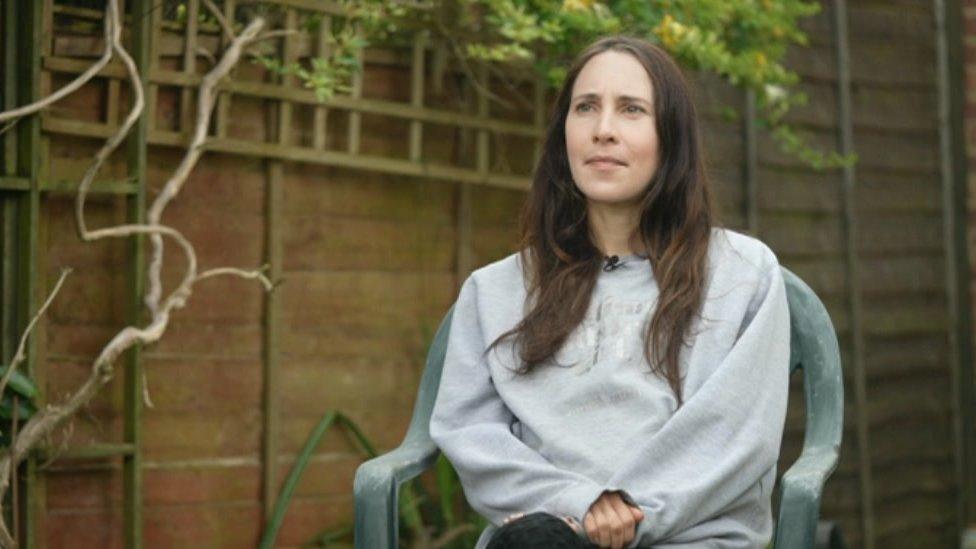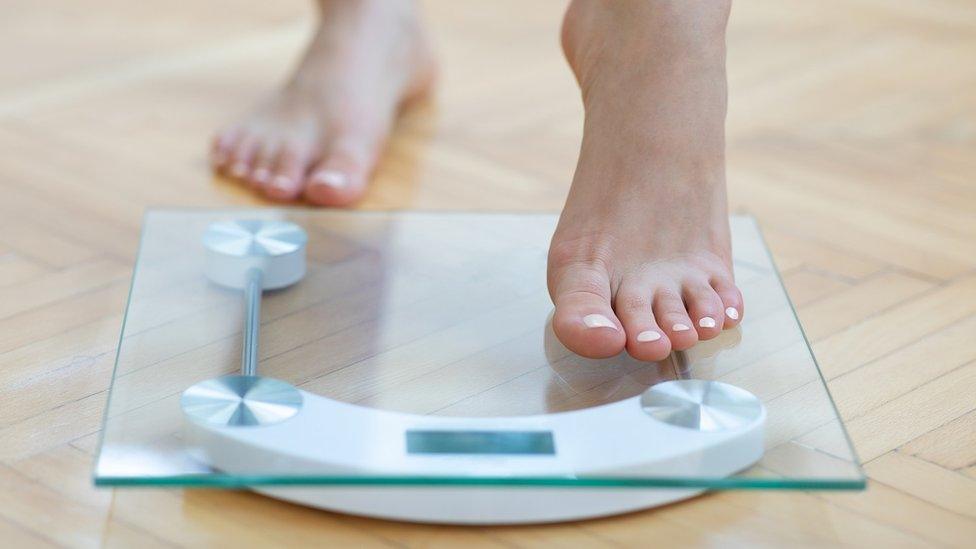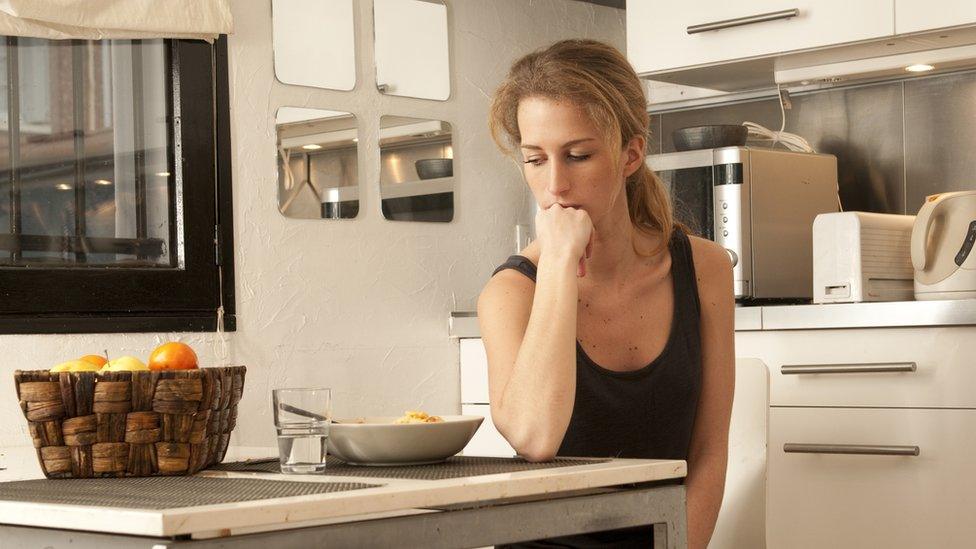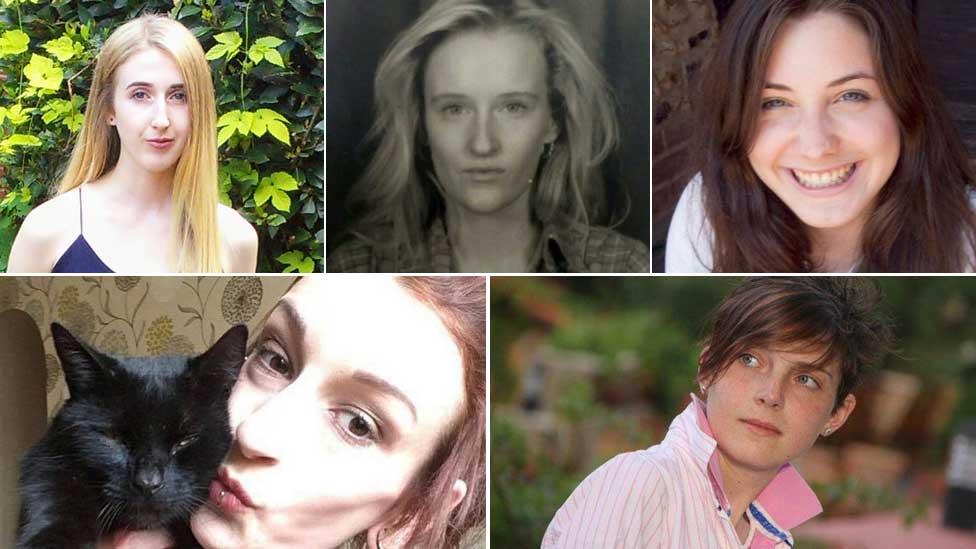Anorexia: Ashford woman emerges from 16-year weight battle
- Published

Francesca Baker said she was on the verge of being sectioned before lockdown
A 34-year-old woman who has suffered with anorexia since she was a teenager said living with her parents during lockdown has helped her recovery.
Francesca Baker's weight plummeted and she developed health issues during the 16-year-battle with the condition.
But she said she was "enjoying life" after returning to the family home in Ashford, Kent.
She has spoken about her eating disorder as statistics show referrals have surged since lockdown began.
NHS England also said it is treating more "people than ever" for anorexia.

According to the charity Beat, anorexia has the highest mortality rate of any mental illness.
In Sussex and East Surrey, there were 14 urgent referrals in the 12 months up to March 2020. In 2020-2021, referrals rose six-fold to 95.
In Kent and Medway, there were 172 cases over the same period - the highest across the country.
Ms Baker said she spent 15 months being treated in a hospital facility in her 20s, where patients would "compete" over who ate the least, or who was the sickest.
After leaving, she got a job in London, but her condition worsened.
She said she was on the verge of being sectioned shortly before lockdown.

If you are experiencing emotional stress, help and support is available via the BBC Action Line here.

The PR consultant initially sought help for anorexia when she started university at 18.
She said she felt she "didn't fit in" with the other girls who "ate less and ran more".
Her GP referred her to an eating disorder specialist, who told her: "No-one wants to be fat, I've seen girls way worse than you."
"The next time I saw her six months later, I was emaciated," Ms Baker said.
She had severe heart problems, osteoporosis and frequently collapsed.

Francesca Baker said people at the hospital would compete to be the sickest (Stock image)
It was living with her parents in lockdown, and working from home, which helped, with planned meals and weekly shops.
She said medical staff "talk about managing your condition, rather than ever thinking about recovery".
"I don't know if I'll ever fully recover but I'm definitely enjoying life much more."
NHS England said the pandemic "has taken its toll on the country's mental health", and eating disorder services were "treating more people than ever before".
It is creating additional capacity, focusing on early intervention, and rolling out 24-hour mental health helplines, a spokesman said.
'Recovery is possible'
According to the charity Beat, anorexia has the highest mortality rate of any mental illness.
Beat's helpline saw a 300% increase in people contacting them in the last year.
A spokeswoman from the charity said: "Recovery is different for everyone affected by an eating disorder. For some people it might mean that they never have another eating disorder thought again. For others it means these thoughts happen less frequently, and they're able to control them.
"We hear from people every day who have recovered or are in recovery, and we know it is possible. The most important thing to remember is that getting help quickly gives you the very best chance of making a full recovery."

Follow BBC South East on Facebook, external, on Twitter, external, and on Instagram, external. Send your story ideas to southeasttoday@bbc.co.uk.
Related topics
- Published15 April 2021

- Published10 March 2021

- Published3 September 2020
